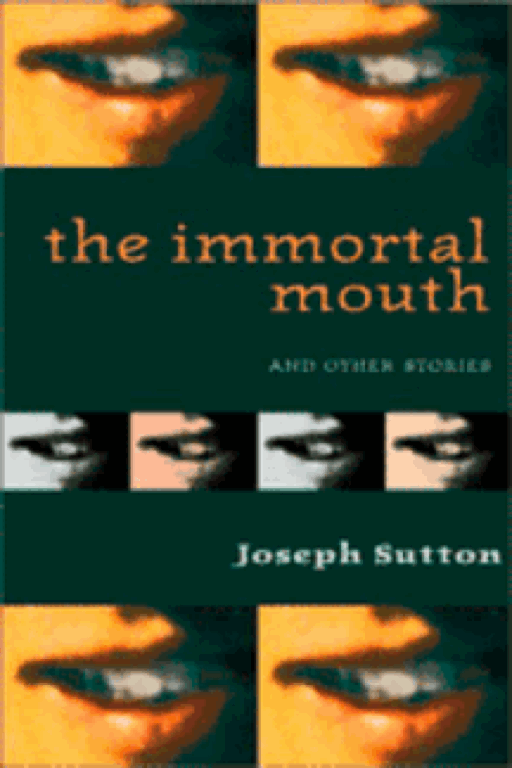
Friday November 7, 2003
by Jay Schwartz
Staff Writer
It’s not every day that someone goes from contemplating God to feeling like an average Joe in the same breath. But this makes perfect sense if you happen to be Joseph Sutton, who has a gift for bringing the cosmic down to a level that you can relate to and for elevating the ordinary to a higher plane.
“I’m still up in the air as to whether there’s a God or not. I don’t know,” he says. “How did everything begin? They all say it came from a little speck. But what started that speck and how did that speck blow up into the universe? I have no idea. So it’s all a mystery and since the whole universe is related in one way or another if it did all come from that one little speck, I’m not a chosen person, I’m just like anyone else.”
This everyman quality fuels Sutton’s recent collection of stories, “The Immortal Mouth and Other Stories.” Whether the focus of the tale is an impressionable Syrian Jewish American boy, a happy-go-lucky twenty-something traveling across the country in his VW bus, or a health-obsessed middle-aged writer, you feel like you’re sitting across from the narrator drinking coffee.
In fact, drinking coffee with Sutton is a very pleasant experience. Sitting at his kitchen table in San Francisco’s Sunset District on a warm Saturday morning, Sutton has the physique of a former football player and the gentle eyes of someone who spends most of his time thinking.
Sutton makes a surprising statement early in the conversation. “This book isn’t very Jewish.” A closer look at the stories, however, provides an argument for the presence of Judaism sprinkled throughout the book.
In “The Fourth Stringer,” the Oregon university football team is about to run out onto the field for The Big Game. The coach offers a prayer but the narrator will have none of it:
“Everyone’s head was bowed except mine. I could never comprehend praying to God then going out on the field to try and annihilate our opponent. Maybe that’s another reason why Coach Colby snubbed me — he didn’t think I was a team player.”
In the collection where about half the characters are Jewish and many have no specific religious background, Judaism is implied through difference. The characters don’t really fit in, but they make their way through the world with a positive attitude and the ability to fully embrace the circumstances given to them.
The narrators aren’t entirely comfortable with Jewish institutions either. They don’t seem to feel comfortable anywhere, but they don’t really seem to mind. The act of searching and questioning is actually what they are best at. Jews are the questioners, the idol-smashers, aren’t they?
“All the rituals don’t do me a darn piece of good. But I’m still a Jew,” says Sutton.
That’s not to say that the San Francisco author doesn’t have connections to the Jewish community. Both of his sons became bar mitzvah at Congregation Sherith Israel. His wife is a Jewish storyteller who specializes in tales for children.
But Sutton tells a different kind of story. He relates what happened in sparse prose with a hint of dry humor. He lets the reader figure out the subtext after the story ends.
The most fun of Sutton’s amiable outsiders is Will Massman, a young man in the mid-1970s who jumps in his VW van and decides to drive around the United States for a while. Not your typical wandering Jew.
In “The Red Ruby,” Massman hits the Southwest, picks up a friendly hitchhiker of dubious sanity and connects with a beautiful woman driving a convertible. She invites the narrator and his hitchhiker over to her place for dinner and proceeds to have sex with both of them simultaneously. Massman is in heaven. In the morning the woman asks him to stay with her. The hitchhiker continues on his merry way. The next day, our infatuated hero invites a local friend over to meet his new love. Again, she offers to have sex with both of them. Massman is disturbed by this and leaves, as he wasn’t expecting group sex to be the norm in his newfound situation.
In almost every scenario, Massman ends up not fitting in, but he always manages to head off in his VW bus able to enjoy life some more.
For the people of this book, that seems to be the point: Enjoy the search, even if things don’t turn out perfectly.
